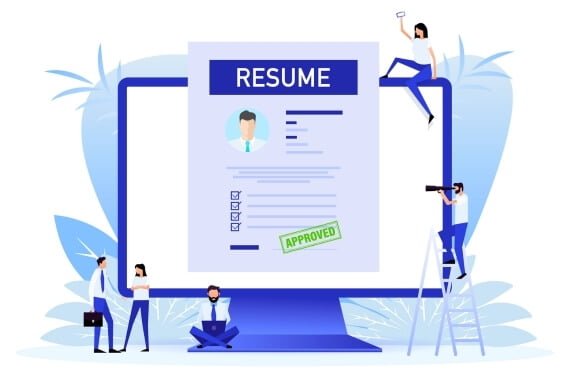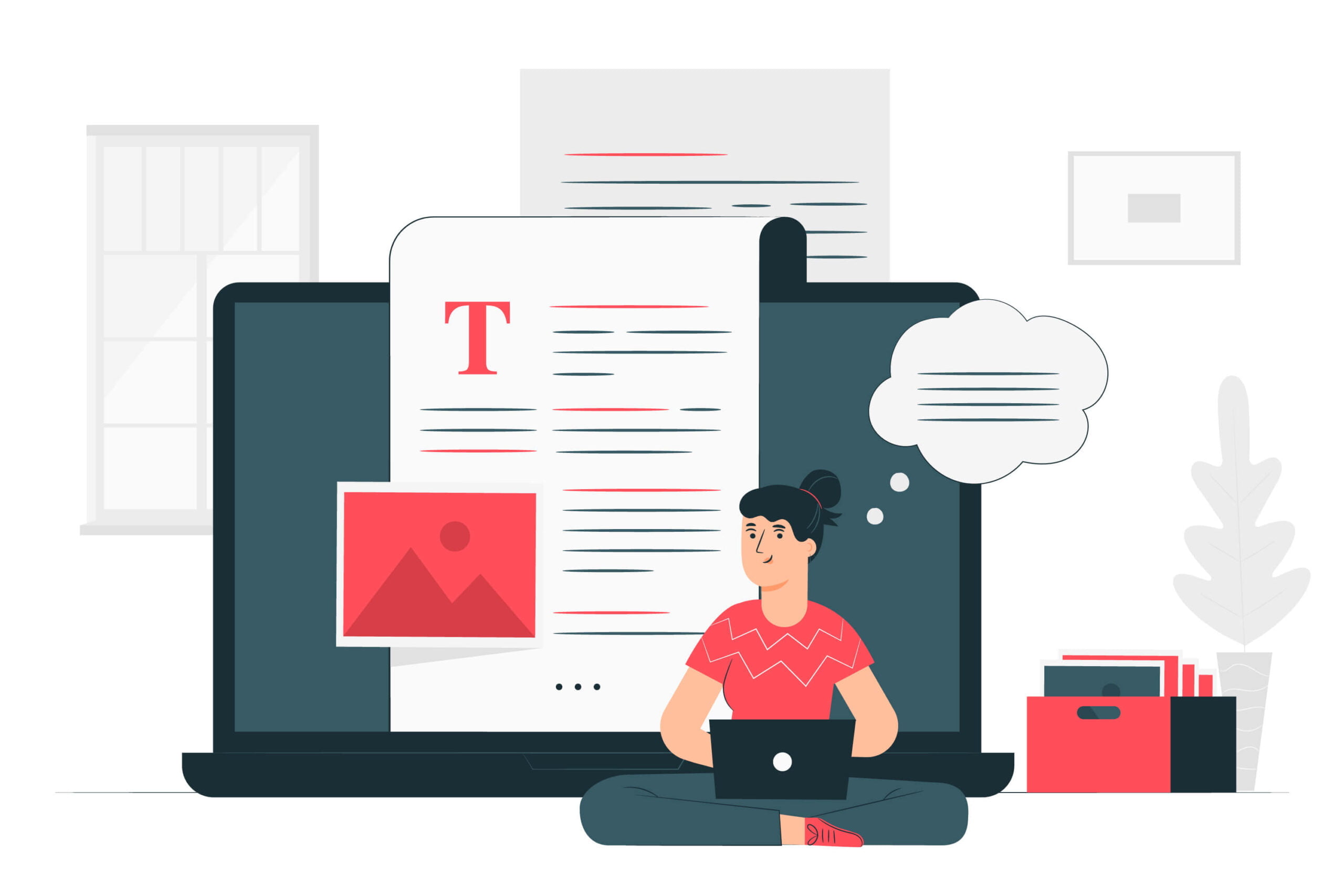

Everything in the recruitment world has also been digitized. No more people go for the traditional methods when looking for a job or hiring one. This blog will discuss what is a resume, how to make one, and why it’s so important.
You can land a dream job if you have an impressive resume.
This article is beneficial for college graduates, as it will give you a thorough understanding of how to curate a compelling resume.
Let’s dive deep into the details of the resume.
A resume is slightly different from a CV (Curriculum Vitae). People often consider both documents to be the same, even though they serve different audiences in different locations. There is no limit to the length of a CV, while a resume is typically short.
A resume is like a highlight reel of your work history and skills. It’s short, sweet, and tailored to the job you want. Think of it as your professional “elevator pitch” to employers, mainly used in the U.S. and Canada for non-academic jobs.
A CV, on the other hand, is more like a detailed career biography. It’s longer because it includes all your academic details, career history, publications, awards, and everything else you’ve achieved professionally.
Unlike a resume, it stays pretty much the same no matter the job you’re applying for, just updated with new info. It’s the go-to document for academic, medical, research jobs, and some government positions, especially outside North America.

Individuals use resumes to create a favorable impression on prospective employers. As the initial impression determines whether they are selected for an interview. Therefore, it is crucial to approach this step with care to achieve positive results.
Note: It is important to consider that not only does a good resume count but you should also have an effective motivational letter.
The resume is the first professional impression.A potential boss will likely not consider you a good choice for the job if you don’t make a great first impression. He is likely to explore other options that have better resumes.

Consider a resume as a way to sell yourself. It is more than a piece of descriptive document. It describes your experience, skills, and schooling so that a possible employer can quickly and easily see how your unique experiences can help a company succeed.
Don’t be intermediate if it’s your first time writing one. Learn an expert approach to resume writing, what should be included in it, and more.
There was a dedicated professional named Gabriel Michelson. He was skilled, he was passionate, but his resume? Well, it was less than impressive.
Gabriel had applied to countless jobs in Quality Assurance at multinational firms. Time after time, he was met with the same result – rejection. It was a hard pill to swallow.
His resume was filled with extensive experience and qualifications. Yet, it lacked the professional touch, the industry-specific jargon, and the polish that recruiters seek.
He decided to seek expert help. He hired professional writers who specialized in crafting industry-specific resumes. They knew the language of Quality Assurance like the back of their hand.
The writers worked their magic. They transformed his resume, making it crisp, concise, and compelling. They highlighted his skills, and his experience, all while keeping it relevant to the Quality Assurance role.
When Gabriel saw his revamped resume, he could hardly believe his eyes. It was professional, it was impressive, it was… him.
He started applying to jobs again, this time with renewed hope. To his delight, he started receiving calls for interviews. Recruiters were impressed by his first impression – his resume.
Gabriel landed a dream job at a multinational firm. His professional life took a turn for the better. His story is an example of first impressions and the importance of a professionally written resume.
And so, Gabriel Michelson’s journey teaches us a valuable lesson. Your resume is your first impression. Make it count.

There are three types of resumes, and all three follow different formats when written. The first step is to shortlist what type of resume is best for your desired job.
Each is used differently to showcase a different part of a person’s skill set or past job experience.
These different types aim to maximize a person’s skills for a specific job while being as brief as possible. For instance, resumes should include a lot of information in a concise yet useful manner while avoiding unnecessary details.
The goal is for the person reading the resume to have no doubt that the individual submitting it is the best candidate for the position.
They are explained as follows:
The deciding factors should be what suits you the most, what type of job you are looking for, and the niche you are working in. You should thoroughly look into all the above three types and see the difference in them.
This should be among the decking factors when jotting down your resume. To learn more about it, see through our Career Writing website to have a professionally written Resume.

Alright, let’s talk about something that often goes ignored – Font.
You might think, “It’s just a font, how important could it be?”
Well, my friend, it’s more important than anything.
How?
Let’s take a simple example to understand it better.
Imagine you’re a recruiter, with stacks of resumes on your desk. You pick one up and it contains tiny letters. It is written in a fancy-styled font which is more suitable for a wedding card.
Tip: You should know which fonts are more readable and preferred in professional resumes. Best Font for Resume
Writing a resume can be a taxing task, especially for fresh graduates. Deciding what information to include, which format to follow, and how to write a resume in a professional manner can be challenging.

The first thing you should see while writing a resume is the goal and objective behind writing the resume. The easiest way of doing this is by composing clear and concise statements on your favorite notepads.
This can help you brainstorm your ideas. You can decide your objective for the job you’re applying for and the resume you are curating.
By following the few simple steps mentioned below, you can easily create your own resume for the starter.
Recruiters go through hundreds and thousands of resumes daily. Then what is the one thing that is the deciding factor for them? The answer is simple: the submission should be clear and well-organized.
Always think from the reader’s perspective!
This will be a great way of putting things into a fresh perspective.
The written form of a resume should be such that it makes clear sense. It should communicate all your experience and skill set. It should get you shortlisted for the job.
Use Action verbs throughout your resume. Some of the action verbs used in resumes include achieved, accomplished, administered, managed, executed, developed, established, and facilitated.
Use positive language throughout your resume to have an excellent positive professional image in your resume. Refrain from using negative words and language.
Break down your content by using bullets to better understand the readers. Use simple yet functional bullets instead of complex.
Build a resume that highlights your strengths and mentions some relevant ones to your potential employer.
Once you have created a resume, proofread it. Check for grammatical mistakes and sentence fluency and structure to avoid errors.
Individuals should have their resumes reviewed by a professional or consider using the services of Career Writing before submitting it.
It is cost-effective and beneficial as if you can land a job, and you will earn way more than you spent.
A resume decides if you will land a job or not. Curate your resume carefully, keeping in mind the goal behind it. Also, look into the different types of resumes and which fits best your professional expertise.
It is, therefore, very important to create a resume that completely highlights your skills, academics, and unique points, in a compelling yet organized manner. It plays a huge part in getting an interview call. Make sure your resume is an exact reflection of who you really are!
If you are confused about creating a resume or updating your old one, it’s never too late to ask for help. Get your resume made by a skilled professional today at Career Writings.
Related Articles



Send us a Message!
Contact Info
30 N Gould St Ste R Sheridan, WY 82801
Follow Us!